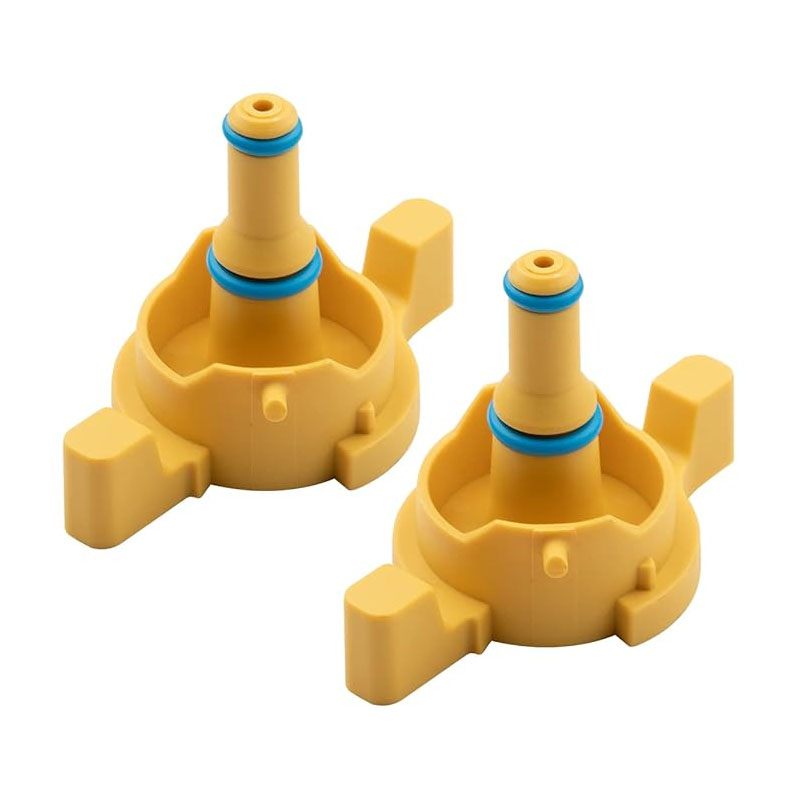Understanding the Function and Importance of Ring Oil Seals in Machinery
Understanding the Importance of Ring Oil Seals
In the world of mechanical engineering and automotive design, precision and reliability are paramount. One of the critical components that help achieve these qualities is the oil seal, particularly the ring oil seal. This article delves into the significance of ring oil seals, their types, applications, and maintenance best practices.
What is a Ring Oil Seal?
A ring oil seal, also known as a radial seal or lip seal, is a vital component used to prevent the leakage of lubricants, oil, or fluids from machinery and automotive systems. It operates by creating a barrier that keeps internal lubricants contained within the machine while keeping external contaminants such as dust, dirt, and moisture from entering.
The design of a ring oil seal typically includes a flexible lip that conforms to the shaft’s surface, providing a tight seal. This flexibility allows the oil seal to accommodate slight movements and vibrations, which are common in mechanical systems. The effectiveness of a ring oil seal largely depends on its material, design, and the conditions under which it operates.
Types of Ring Oil Seals
Ring oil seals come in various shapes and materials, each engineered for specific applications. The most common materials include
1. Nitrile Rubber (NBR) Known for its excellent resistance to petroleum-based oils and fuels, NBR is widely used in automotive applications. 2. Fluoroelastomer (FKM) Designed for high-temperature applications, FKM is commonly used in situations where oil exposure is frequent and temperature extremes are present. 3. Polyurethane Offers outstanding abrasion resistance, making it ideal for heavy machinery and industrial applications. 4. Silicone This material is used in food processing and pharmaceutical applications due to its resistance to various chemicals.
The design variations include single-lip seals, double-lip seals, and spring-loaded designs, each suited to specific operational environments. Single-lip seals are typically used in less demanding applications, while double-lip and spring-loaded seals provide added protection against leaks and contaminant ingress.
Applications of Ring Oil Seals
Ring oil seals are ubiquitous across various industries. Some of their prominent applications include
- Automotive Sector Used in engines, transmissions, and differentials to prevent oil leaks and ensure a long-lasting performance. Ring oil seals are critical in maintaining proper lubrication, thus enhancing engine efficiency and longevity.
ring oil seal

- Industrial Machinery In mining, agriculture, and manufacturing equipment, ring oil seals are harnessed to protect bearings and other components from wear due to lubrication loss and contamination.
- Aerospace Here, reliability is non-negotiable; ring oil seals ensure that engine components remain lubricated while also preventing the ingress of foreign particles that could lead to catastrophic failures.
- Pumps and Compressors In these applications, ring oil seals maintain the integrity of the lubricating oil while sustaining operational pressure.
Maintenance and Best Practices
To ensure optimal performance and longevity of ring oil seals, proper maintenance and installation are paramount. Here are some best practices
1. Correct Installation The seal should be installed carefully to avoid any damage. Misalignment during installation can lead to premature failure.
2. Regular Inspections Regularly check the seals for signs of wear, cracks, or leaks. Identifying these issues early can prevent operational downtime and costly repairs.
3. Choosing the Right Seal Always select the oil seal that matches the specific operational environment. Factors such as temperature, pressure, and type of fluid should inform your choice.
4. Lubrication Ensure that the seals are adequately lubricated to reduce friction and wear. Proper lubrication extends the service life of the seal and the machinery as a whole.
Conclusion
Ring oil seals are fundamental to ensuring the efficient operation of machinery and vehicles across various industries. By understanding the design, application, and maintenance of these seals, manufacturers and operators can enhance equipment reliability and longevity. Whether in automotive engineering or industrial applications, the significance of ring oil seals cannot be overstated; they are the unsung heroes that support the seamless functioning of complex machinery. Thus, investing in quality oil seals and adhering to best practices is essential for any mechanical system's success.
-
Simplifying Oil Changes: A Comprehensive Guide to Oil Drain Plugs and Their Variants
News Aug.04,2025
-
Mastering Oil Drain Maintenance: Solutions for Stripped, Worn, and Upgraded Oil Plugs
News Aug.04,2025
-
Fixing Oil Pan Plug Issues: Leaks, Stripped Nuts, and the Right Replacement Solutions
News Aug.04,2025
-
Everything You Need to Know About Oil Drain Plugs: Sizes, Fixes, and Upgrades
News Aug.04,2025
-
Choosing the Right Oil Drain Plug: A Guide to Sizes, Materials, and Drain Innovations
News Aug.04,2025
-
A Complete Guide to Automotive Drain Plugs: Types, Problems, and Innovative Solutions
News Aug.04,2025
-
The Ultimate Guide to Car Repair Kits: Tools and Essentials Every Driver Should Own
News Aug.01,2025
Products categories















